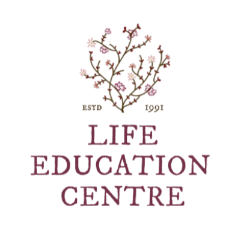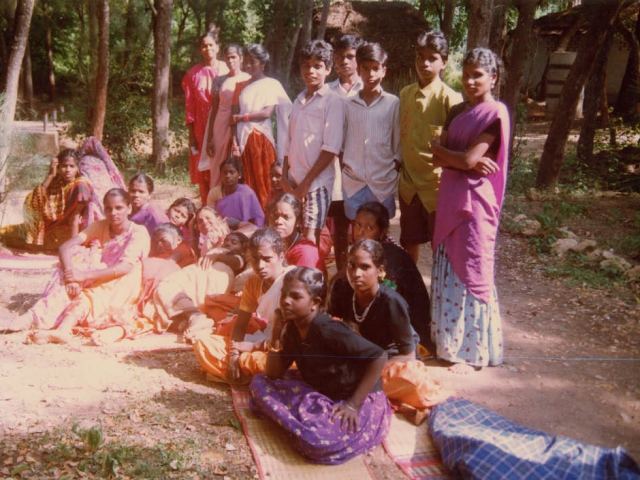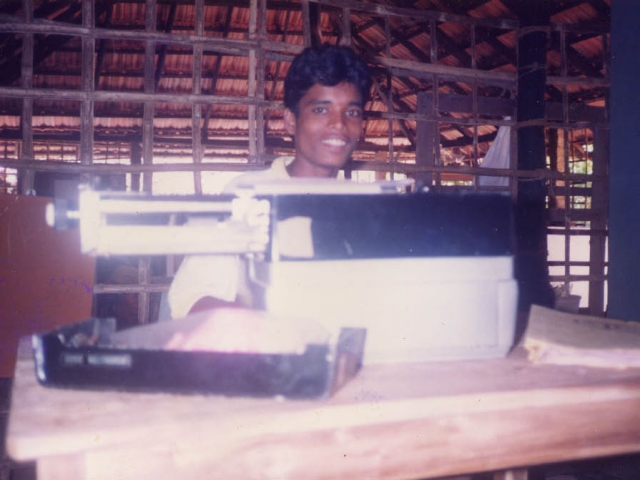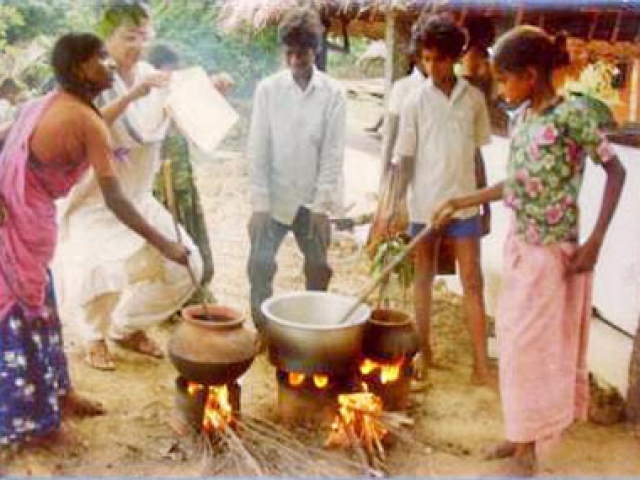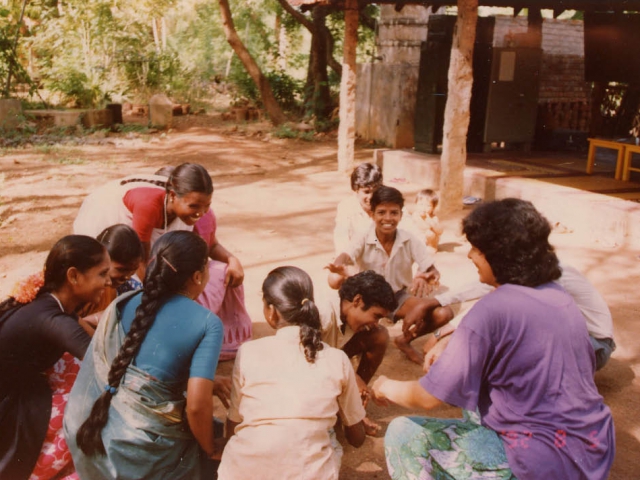Planting the Seeds
Our purpose as an educational centre has evolved since our founding to address to the current needs of local communities. When LEC was established in 1991, a main concern in villages was the serious lack of schooling opportunities for children, particularly those of the untouchable Dalit caste. Offering an alternative to the dark reality of living on the streets or in unhealthy home environments, LEC was created. From the beginning we knew the importance of addressing the children’s personal struggles, such as low self-confidence and motivation, poor social skills and lack of physical coordination and energy. Without working on these core concerns, our students would not be able to thrive.
The first classes were small. They were held outside under a big tree at Auroville’s Kottakarai Farm, where 10 to 12 boys and girls joined us. Our curriculum was developed to suit their needs. We encouraged playfulness and physical exercise through games and dancing. Activities such as gardening, pottery, carpentry, farming and cloth-dyeing offered opportunities to explore a hobby or develop a professional craft. Students were introduced to typewriting, mechanics and tailoring in professional training. The group aspect of the program allowed the students to improve their social skills.
Though the response from the children was positive, we still experienced challenges. Attendance was difficult to maintain, especially due to cost. Many poor families could not afford the tuition and students were often kept home to do chores or work elsewhere. A Government of India program offering stipends to families helped solve this issue slightly. Boys also frequently skipped class because they were not used to mandatory attendance. We also faced a language barrier between our English-speaking teachers and Tamil-speaking students, in addition to the obvious challenge of not having proper facilities of our own. Sharing our space with other Auroville units reduced our ability to offer
complete support to our students.
Our classes during our first 10 years of operation served the needs of village children. Sitting outside under a tree at Kottakarai Farm, we introduced them to a positive learning environment that valued their individuality and ability to learn and create.
Branching Out
In 2001, this last challenge was solved when we obtained a plot of land near Isaiambalam in Auroville. Construction of our own individual campus — which we still call home today — began quickly. Thanks to a three-year grant from the European Commission, we were able to finance the new centre, expand our program offerings
and connect with more students.
During these years of growth we noticed a significant shift in the makeup of our students. More women were enrolling at LEC than men, which can be explained in part by cultural views that prioritize a man’s right to education over a woman’s. As a result the scope of our programming gradually began to tailor exclusively
to young women with little formal schooling.
Blossoming
We experienced another shift again in the mid-2010s. Fortunately, the culture in Tamil Nadu has changed to support girls and women in their pursuit of education, and we had less young women enrolling in our programs because they were going off to university. This change allowed us to focus on a different group with unique needs. The women who attend LEC today are often older, married with children, and have higher levels of education. LEC has become a safe space for their continued education outside of school and connection with other women. Their desire to financially support themselves and their families inspired the development of the Sakhi social enterprise. After experiencing years of changes and growth, we see LEC on a strong path with a clear vision of how to best help our students.
